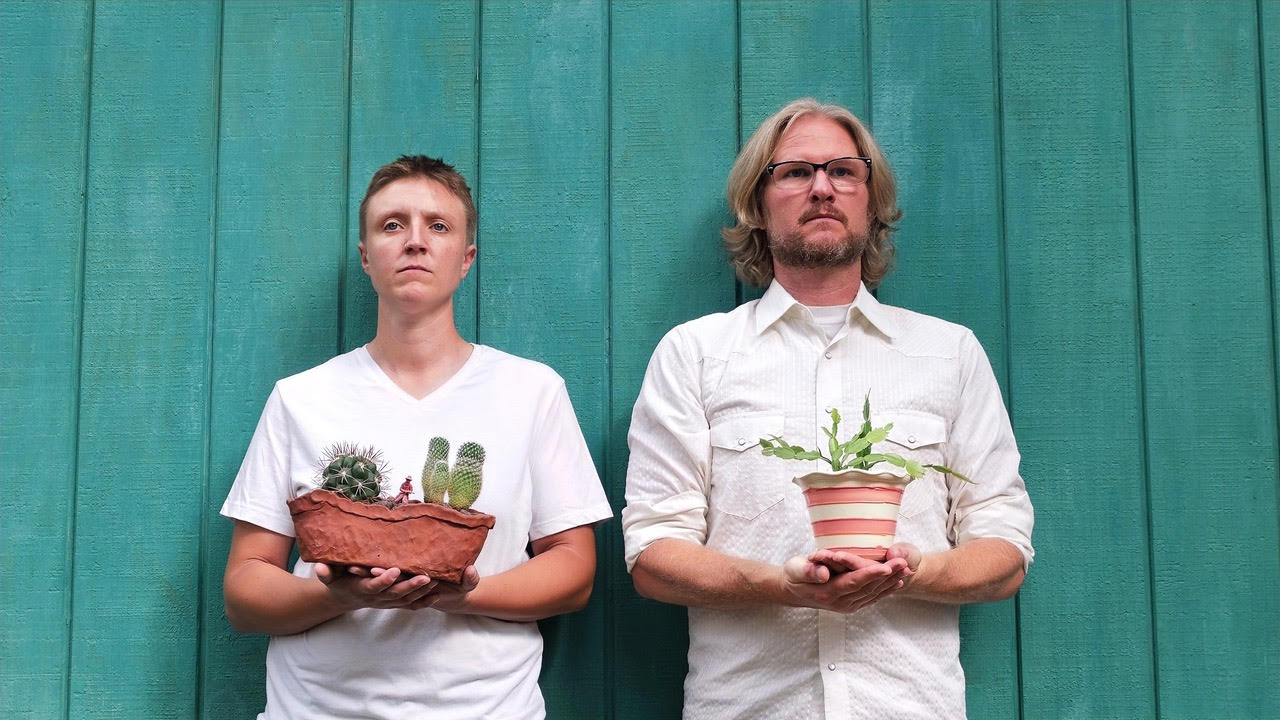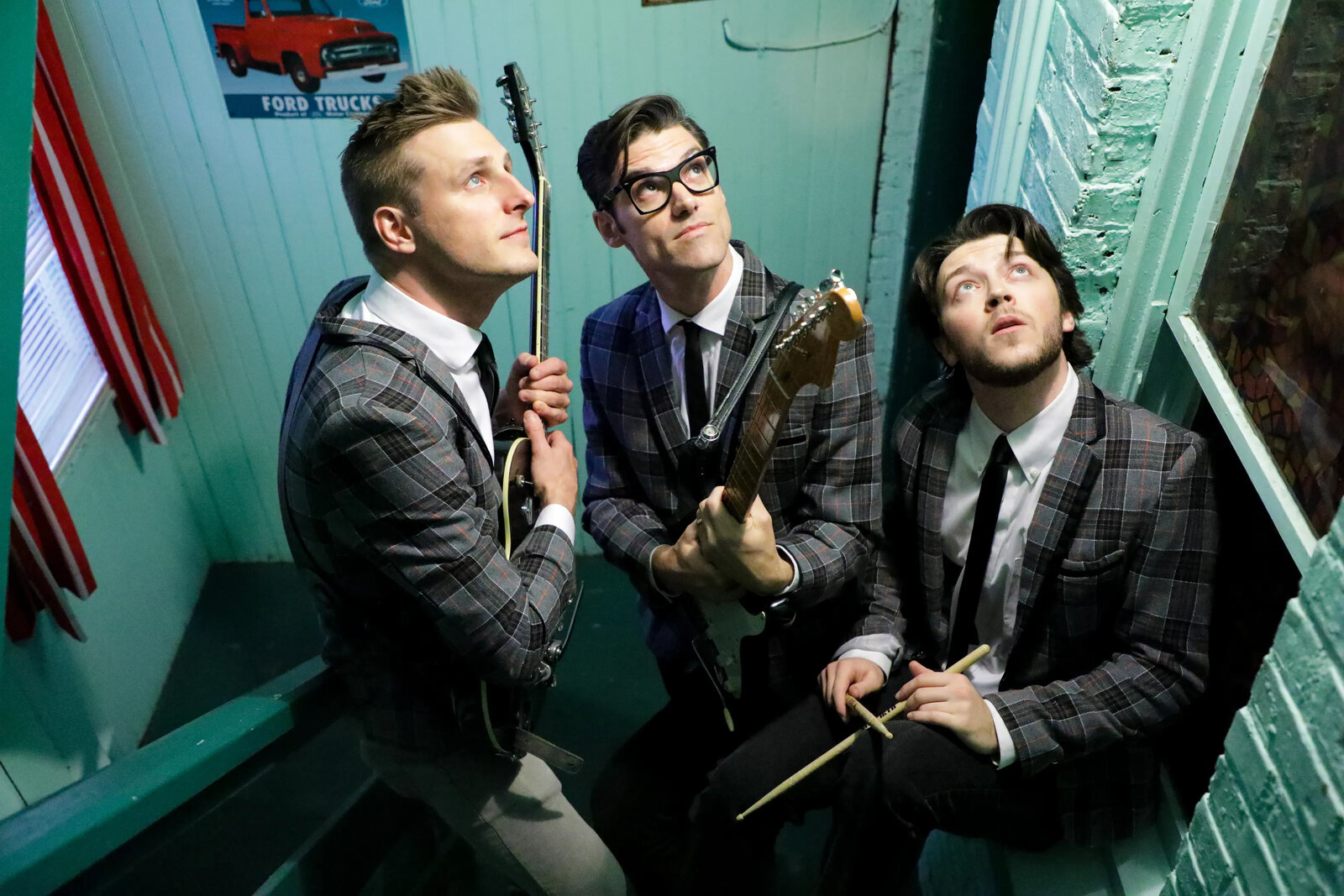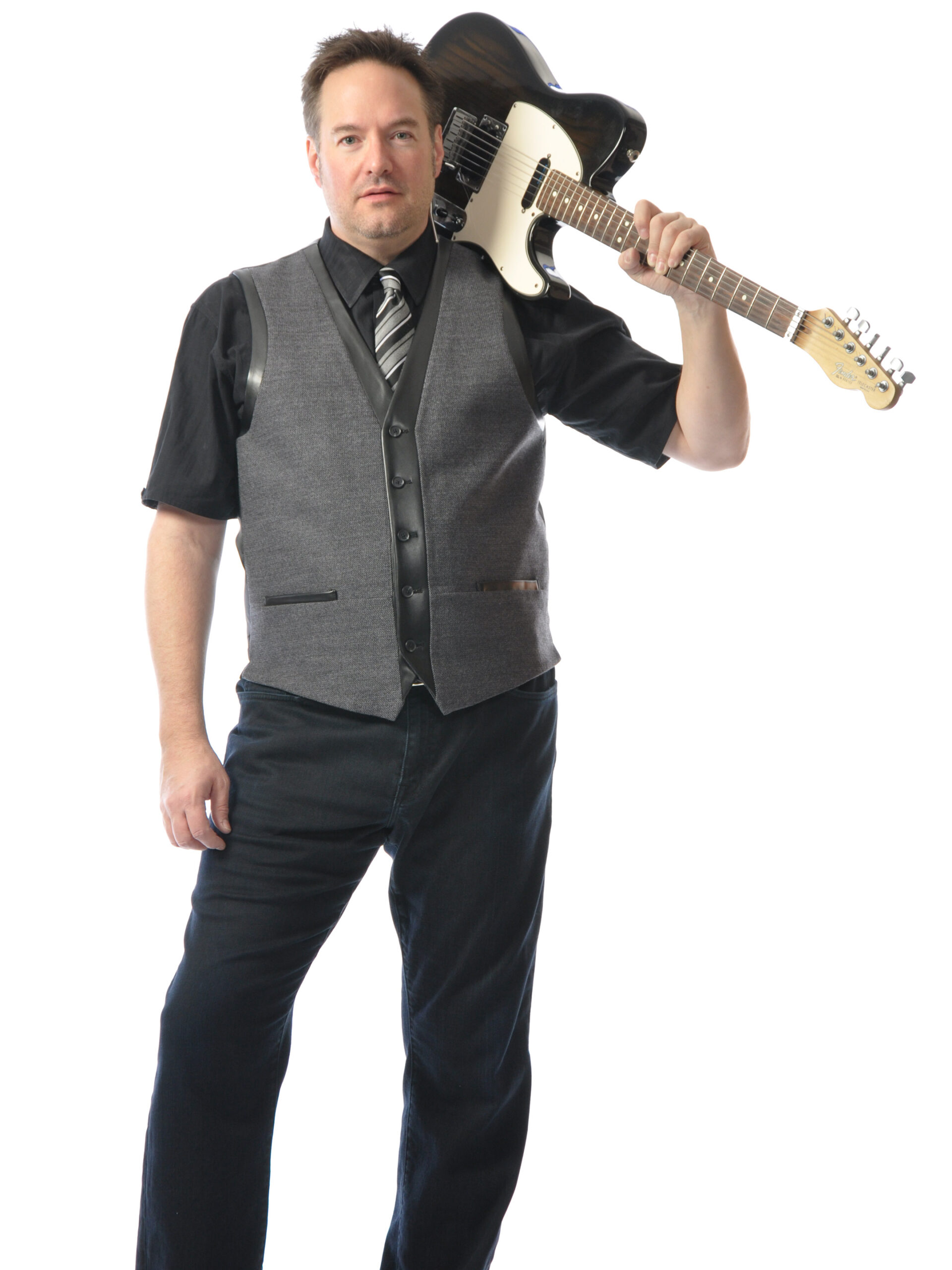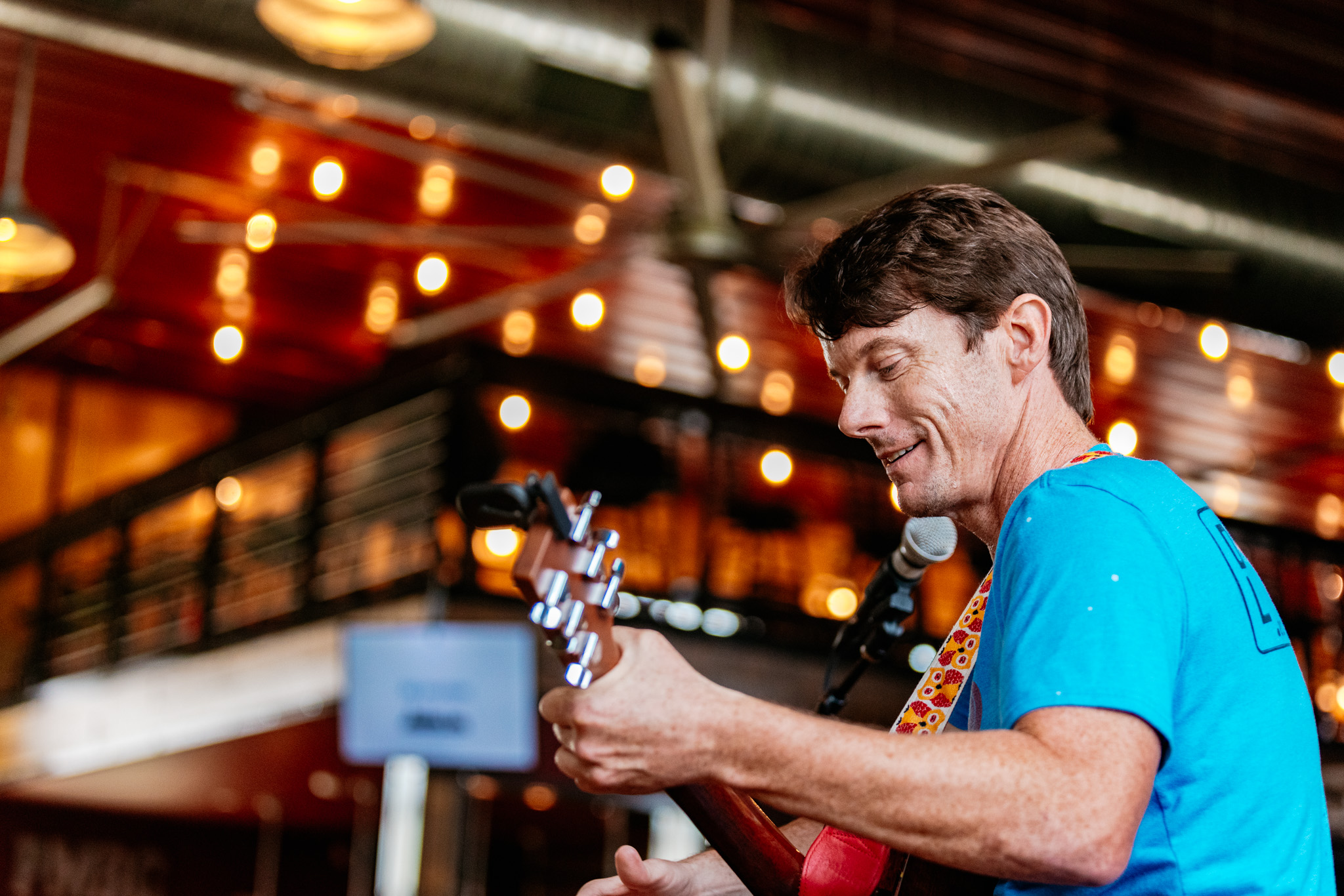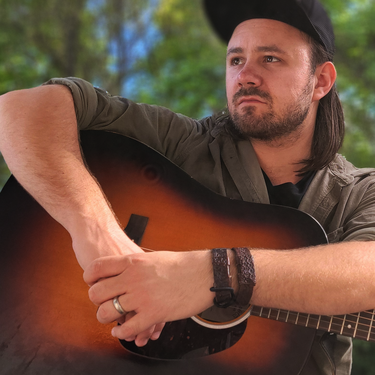Can you share your musical journey with us, from when you first discovered your passion for music to where you are today as an independent musician?
My first exposure to the idea of pursuing music as a career was through my mother, who was a folk singer/songwriter. I started playing musical instruments at a young age and singing in choirs, but I didn’t seriously think about an active career in music until I was almost out of high school. It took me a year or two of trial and error to write original music that I actually liked, but once I started really liking what I was creating, then I took the pursuit of music more seriously.
What motivates you to create music, and how do you stay inspired to continue making new and unique music?
Music as an artform for me is partly a desire to create something interesting or beautiful that I myself would like to listen to, and partly a form of catharsis, like my own personal therapy. I find that I am most inspired to write lyrics through observations of other people. I get most of my inspiration from human creations like cities and families rather than from the natural world, though I spend a large amount of my time in the natural world. Beyond that, when I am creating, I generally try to push myself to find something special in what I am creating instead of settling for the first idea that pops up.
As an independent musician, you wear many hats – from composing to marketing. How do you balance these different aspects of your career, and what challenges do you face in the process?
Yeah, this is probably the biggest collective challenge in itself. Indie artists more or less have to do the work of what major label artists would have teams of people doing: production, social media, marketing, booking, budgeting, etc. The two major obstacles I usually face are financial limitations and work/life balance. I might have the energy to do the work quite often, but I may be limited by budget. Or, I may be able to do things like create content or record and produce new music myself, but then the issue might be having enough time and energy. And of course there is the visible payoff issue. There have been times in the past I have put huge amounts of time, energy, work, and money into a project or a release, and it just didn’t feel worth it in the end. Part of the solution is re-framing my idea of happiness and my idea of success. If I am generally happy, content, provided for, and able to create my art, then I have to consider that success as well.
Could you tell us about your creative process? How do you come up with new ideas for songs, and how do you go about turning those ideas into finished tracks?
I tend to go through phases of writing where I might write 10 songs in a few months and then not write anything for a few months. It usually starts with either a lyric or a chord progression. I might use a voice recorder to record clips of ideas, then come back and work on them later. I often do demos and maybe add some light layering to see what direction a song should go in, then ultimately track most of the layers in my studio. Sometimes I go remote to track people like drummers on site at their rehearsal space, and on my latest project, The Secret Trails, I recorded the vocals and guitars in my studio, then sent them to Nashville for the rest of the production.
Independent musicians often face financial challenges. How do you manage your finances to sustain your music career while also covering your personal expenses?
Well, keep a day job. Ha! No really, I work my music career into the cracks in my schedule. Music (and anything in the entertainment industry) is not always a very reliable source of income. I teach college English so that I can have a steady salary and benefits. It also allows me to have summers off – which is when I am most busy with performances and touring. This allows me the freedom to do what I need to do with my music and perhaps afford things that I wouldn’t be able to if I relied solely on music for income. Other than that, I try to keep my music income separate from my other finances so that I can utilize those funds for things like merchandise, travel budget, marketing, etc.
Can you share a particularly memorable or challenging experience from your journey as a musician that has had a significant impact on your career and personal growth?
Probably the biggest impact on my musical career was the process of touring in Germany. It was a very validating experience, so it reignited my motivation as an artist. Since that time I have taken my career more seriously in terms of marketing, professionalism, and the process of booking.
With the rise of digital platforms, the music industry has changed significantly. How do you navigate the digital landscape, including streaming services and social media, to promote your music and connect with your audience?
It’s pretty easy these days to distribute your music through many different platforms that submit to a sea of streaming platforms. It’s also cost-effective. And of course, musicians just sort of have to utilize online platforms to maintain a presence in the music world. I use social media mainly as a marketing tool, and I try to do things like schedule posts and use tools that cut down on my own screen time. I think the key is to make something affordable and effective, while not giving up your whole life to digital media.
Collaboration is a key part of the music industry. Have you worked with other musicians or producers, and how have these collaborations influenced your sound and career?
There are two important collabs I have done recently. The first was working with producer Ken Coomer to record an EP for my new project. He was a drummer and founding member of the band Wilco, which is a band I have listened to for years. He also drummed for the band Uncle Tupelo on an album called Anodyne, which is a very popular album in the inde-folk/alt-country genre. The music he produced for me was a group of songs I wrote for The Secret Trails, and his production set the stage for what the overall sound of the project would be. The second collab was with Kim Zunner, the other main musician in The Secret Trails. She is a great musician and adds another dimension of guitar and vocals that round out the sound of the band.
Your music likely reflects your unique style and perspective. Could you describe your musical identity and what makes your sound stand out in a crowded industry?
My main thing has always been writing substantial lyrics. Sometimes, they may be fairly wordy, but the goal with what I have created has been thought provoking songs with interesting and infectious melodies. I often push myself to make each song its own thing, and I don’t tend to settle for lyrics or songcrafting that I find boring. I make music I would want to listen to. You may need to spend some time with my songs to let them sink in, but they quite often make people want to listen again, which is something that I don’t think is the case with all songwriters. One downside to the saturation of the music industry is that it takes more time and effort to find things that are actually worth listening to more than once.
What role does live performance play in your music career, and how do you approach planning and executing your live shows, especially in light of recent challenges like the COVID-19 pandemic?
Well, COVID isn’t really much of a barrier now, but when it was, the best solution was to play outdoor venues. Overall, my live performance season runs from about mid-April through late October. I play shows outside that range, but not as many. I tend to hibernate, write, and record during the winter and early spring, then play shows until fall. Live music gives me the budget to put back into my music. I offset the cost of manufacturing merchandise, food and lodging on tours, and musical equipment with what I make performing live. I like the cyclical nature of my gig season. I tend to burn out of energy by the winter, but once April rolls around, I’m psyched to get on stage.
Many fans are interested in the stories behind the songs. Could you share the backstory or inspiration behind one of your recent tracks that holds special meaning to you?
My latest song was just released by The Secret Trails. The song is called “Old State Street” and it was inspired by some of my family history. My great-grandfather grew up in depression era Oklahoma and lived through the dust bowl with his family before moving out to California for work. This song is sort of about that time and about how the human race never seems to learn from its history. The dust bowl was brought on by over farming and unsustainable farming practices that altered the landscape of the midwestern US during terrible drought and unpredictable weather. We seem to have a pattern of sucking the land dry for our own gain, and I think it’s a tragic part of human nature – greed that ends in disaster. The single, which was produced by Ken Coomer, dropped for all streaming platforms in late September, to be followed in mid-November by the second single.
Looking ahead, what are your future goals and aspirations as an independent musician? Are there any upcoming projects or exciting developments in your career that you’d like to share with your fans and the audience?
The new single by The Secret Trails, called “Fault”, will release on November 17. I also have a side project called The Brighter Still which is an alt-rock band. Our newest song “Golden Eyes” releases on October 27. After that, there will be 3 more singles from the self-titled EP by The Secret Trails. You can check out both www.ryandavidorr.com and www.thesecrettrails.net for updates on future shows and music releases.
